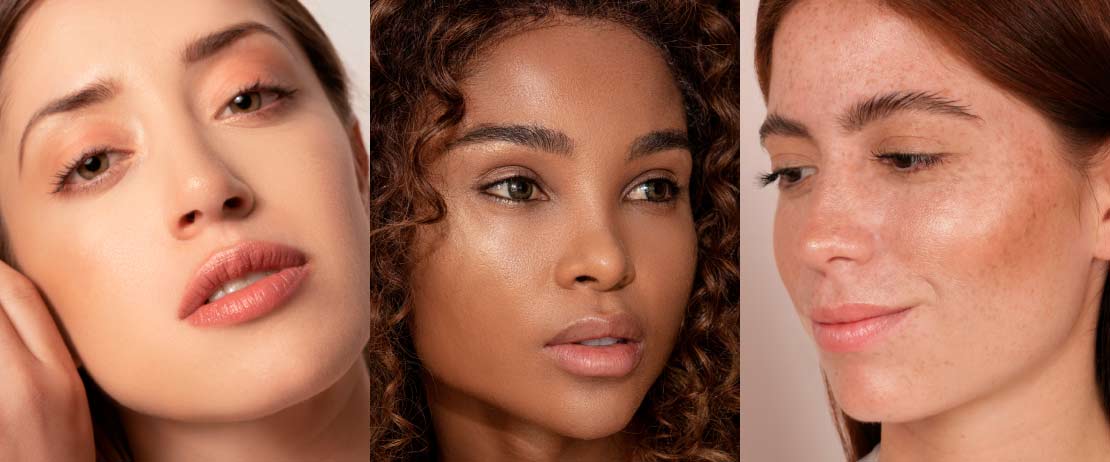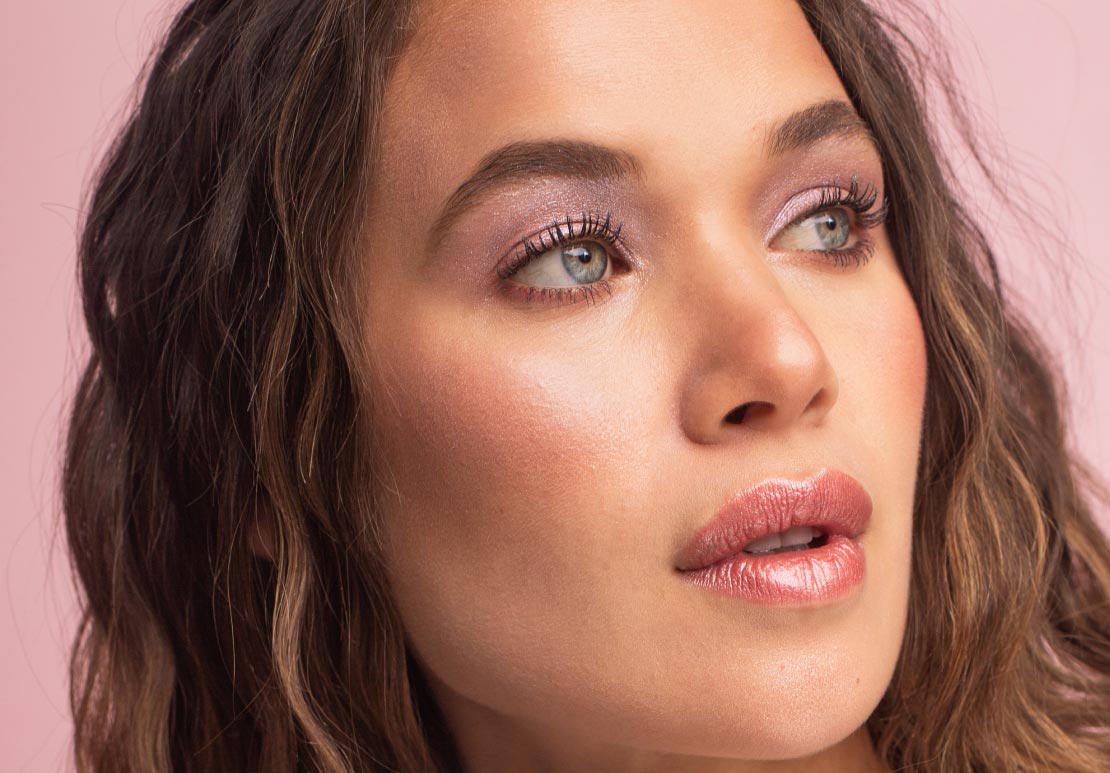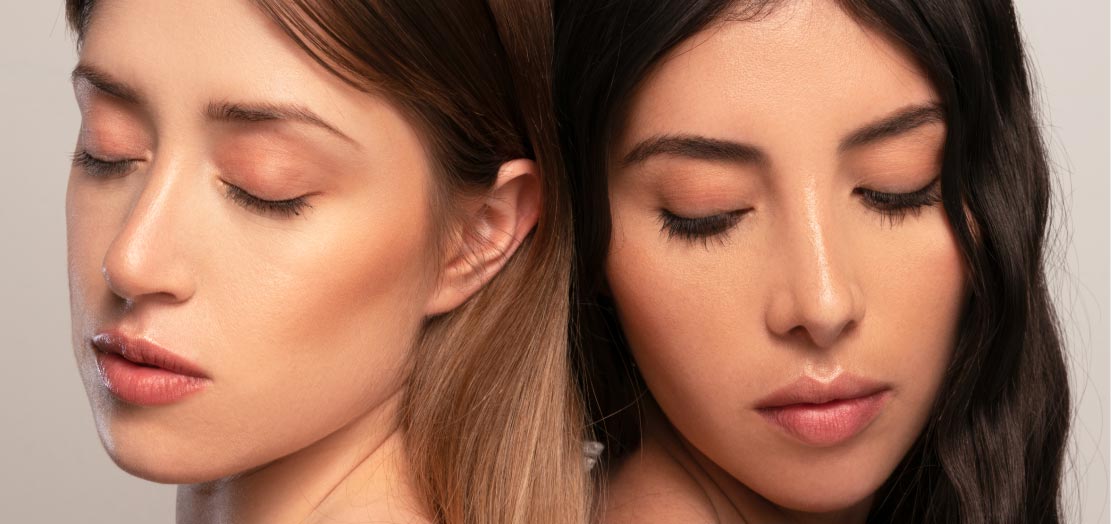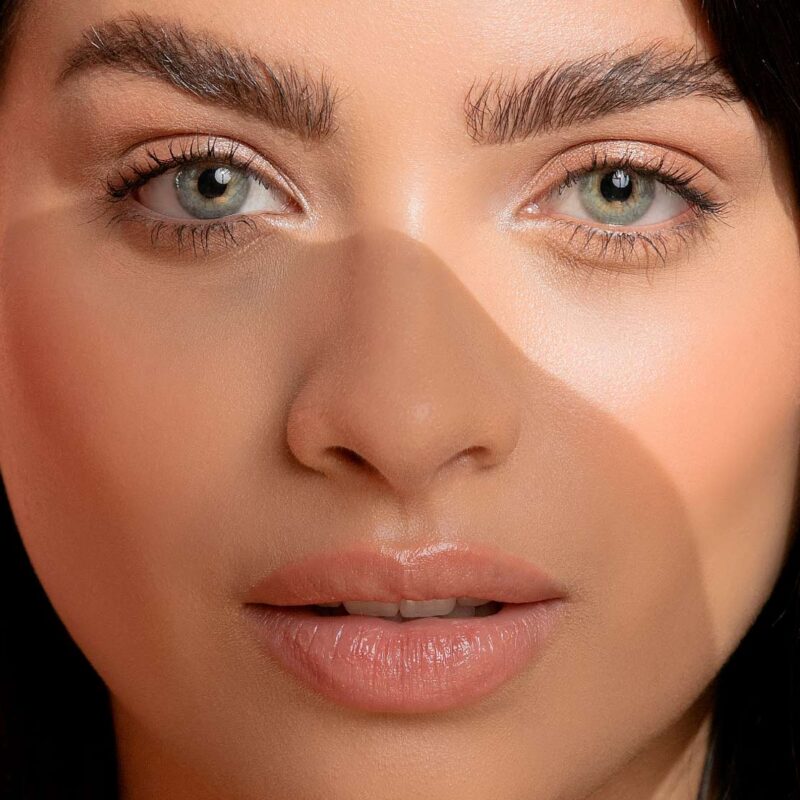Products
Skin types: what are they, what are their characteristics and how to care for them?
Identifying your skin type can be challenging because it depends on many factors, including genetics, external factors, pollution and the constant changing of skincare and makeup products.
In this blog you will find information that will help you recognize the characteristics of each skin type, how to care for it, and how to keep it luminous, healthy and uniform.
Why is it important to recognize your skin type before buying skin care products?
Knowing your skin type is important in order to determine the appropriate treatment your skin needs to improve its appearance and delay the aging process, which can often be premature.
How to identify my skin type?
Keep in mind that factors such as pollution, hormonal changes, climate and aging can temporarily alter the production of sebaceous glands and change the texture of your skin; therefore, you should be aware to add or remove products in your skincare routine as it changes.

These tips will help you identify your skin type.
1. Wash your face and wait 30 minutes observing how it acts, when the skin is completely dry you should check if there is any shine on the nose and chin, if so, your skin may be a combination or a normal type.
Wait 30 minutes more observing your cheekbones, if the shine goes to this area, your skin can be identified as oily. If, on the contrary, as the minutes pass, you notice your face tight and dull, it can be identified as dry skin.
2. With the help of a mattifying paper, lightly dab your face and observe the amount of oil that remains in it. If it is only in the forehead and nose area, you can identify your skin as normal or combination. If, on the other hand, the paper is completely filled with oil, you could have an oily skin type. If very little or no oil is visible, you have a dry skin type.
Which are the existing skin types and their characteristics?
There are different skin types: combination, dry, oily, sensitive, blemished and mature. Learn about them here and identify your own.

Normal skin
This type of skin does not require special care other than a basic skincare routine to keep it healthy, as over time it can turn into dry skin due to lack of hydration.
Characteristics of normal skin.
- Regular texture and without blemishes.
- Good blood circulation.
- Balanced, smooth and elastic.
- Uniform complexion.
Tips to take care of a normal skin type.
- Use micellar water every day to keep it fresh.
- Perform a gentle exfoliation once a week.
- Apply moisturizers daily. Normal skin is more likely to show signs of fatigue and age in the eye contour area.
Oily skin
This skin type has a shinier appearance because it is the one that accumulates the most sebum. It requires a special routine and care, it must be exfoliated often to avoid dirt and reduce oiliness.
Hormonal imbalance, genetics, aging, climate change, and diet, among other factors, can influence the excess of oiliness.
Characteristics of an oily skin type
- Visible enlarged pores.
- Excess of oiliness.
- Thickened and pale skin: blood vessels may not be visible.
- Pimples and blackheads.
- Acne.
Tips to take care of an oily skin type.
- Use sebum-reducing face masks twice a week.
- Tone your face with your daily skincare routine.
- Use serums that contain hyaluronic acid.

Combination skin
This skin type is identified when not all areas of the face remain in the same condition throughout the day. It is a combination between normal and oily skin. It requires much more care due to its mix of characteristics. It is recommended to constantly hydrate it and exfoliate once a week.
Characteristics of a combination skin type
- Blackheads and shine in the T-zone.
- Open pores in the T-zone.
- Cheeks with a tendency to dry out easily and in need of hydration, especially when it is cold or breezy.
Tips to take care of a combination skin type
- Start your skincare routine with a gentle facial cleanser.
- Use an appropriate amount of product on the T-zone of your face. It can be the size of a walnut.
- Use oil-free moisturizers.
Dry skin
This skin type is prone to flaking and redness due to its lack of hydration. It is influenced by climatic changes and constantly requires moisturizers that promote the production of collagen and elastin to keep it balanced and healthy.
Characteristics of dry skin type
- Sensation of tightness and in some cases itching.
- Rougher and flakier appearance.
- No natural glow and rather dull.
Tips to take care of a dry skin type
- Use moisturizers that are based on natural oils.
- Drink at least 2 liters of water daily.
- Use serums, as they are the perfect complement to skin hydration.

Mature skin
As we age, skin processes change in appearance and feel, i.e. less cellular activity, slower regeneration and less collagen is produced. Mature skin tends to look dehydrated and it lacks elasticity.
Characteristics of mature skin
- Less elasticity.
- Lack of hydration.
- Expression lines are more visible.
Tips to take care of a mature skin type
- Use a special cream to moisturize the eye contour area.
- Avoid habits that accelerate the aging process in the skin such as smoking, alcohol consumption, and excess of sugary foods.
- Pay special attention to your night routine and use creams that favor the cellular regeneration of your skin.
Sensitive skin
This type of skin reacts to external factors such as stress, heating air, strong winds or ultraviolet rays, since, with these situations the skin tends to become unbalanced, looking tense, itchy, dry and red. This can also happen due to blemishes, acne and blackheads, which is why you should take special care.
Characteristics of a sensitive skin type
- Constant breakouts.
- Blushes easily.
- Sensitive to external factors such as the sun and perfumed products.
Tips to take care of a sensitive skin type
- When cleansing your face, do not wipe it strongly with a towel.
- Use fragrance-free products as these fragrances can cause skin irritation.
- Use creams and sunscreens that contain a broad spectrum sun protection factor (SPF) to prevent signs of premature aging.
Remember that the most important thing is to have a consistent skin care routine. Cleansing, moisturizing, exfoliating and protecting are essential steps no matter what your skin type is. Identify what yours is and start creating a skincare routine especially for you.
Keep learning with our skincare blog! And order our recommended skincare products that you can find in our online store.



